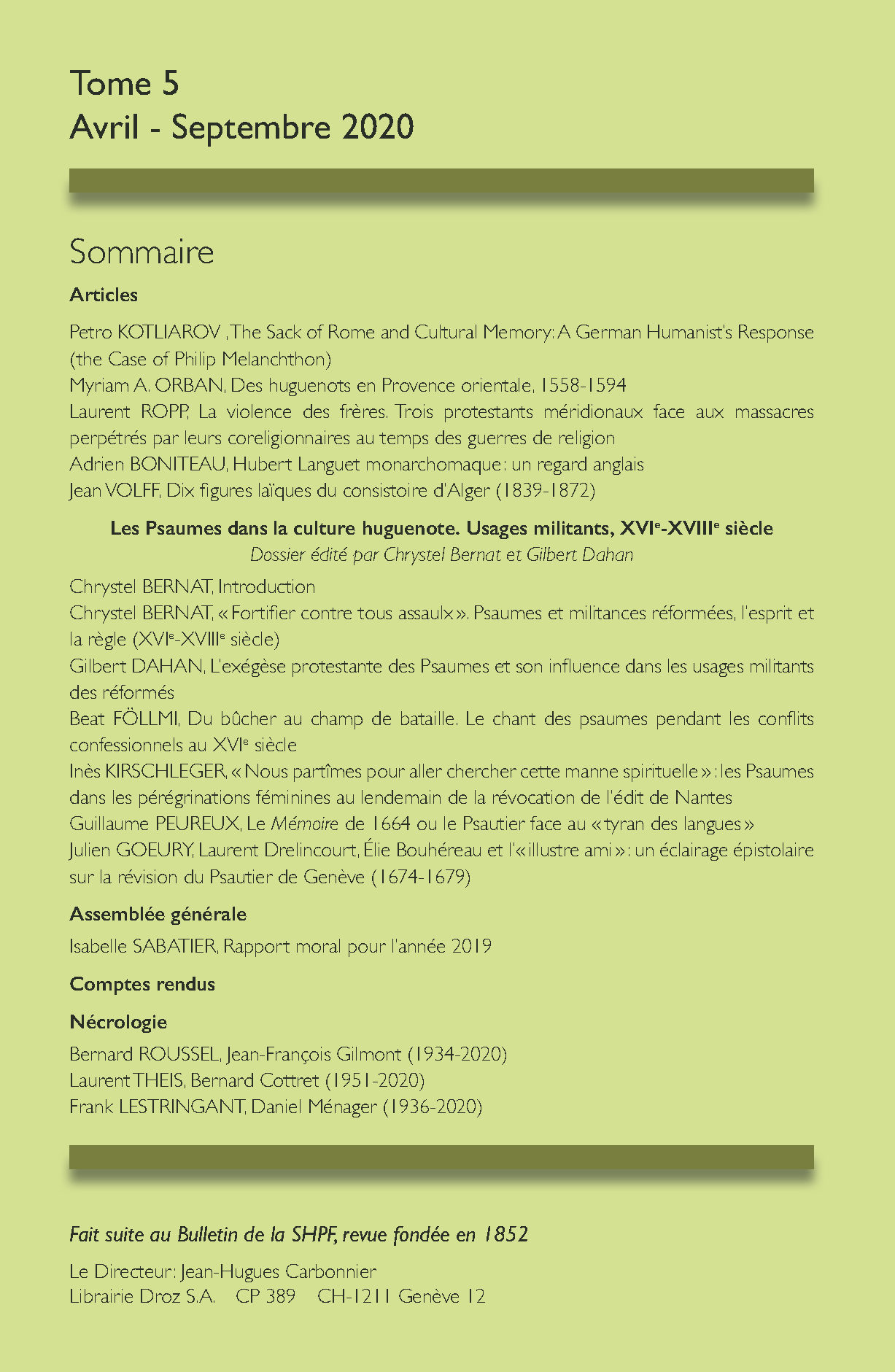The Sack of Rome and Cultural Memory
A German Humanist’s Response (the Case of Philip Melanchthon)
Abstract
This study examines the narratives of the leading Lutheran theologian Philip Melanchthon, in order to trace out how his memory of the past, depending on the specific historical context, influenced his assessment of the role and place of Italian cities in pan-European and Christian history. Drawing on the theoretical paradigms of places of memory (Pierre Nora) and cultural memory (Jan Assman), we pay particular attention to the city of Rome, which became an essential part of the German humanists’ cultural memory at the beginning of the sixteenth century. This was largely a result of the integration of German humanists into the European Republic of Letters and their interest for Greco-Roman antiquity. From the beginning of the German Reformation in 1517, one can see Melanchthon changing his former humanist views. Under the powerful influence of Luther, he began to write and speak of Rome as the centre of sin and falsehood, where science and art received barbaric treatment. However, his rhetoric once again underwent significant change after the Sack of Rome in 1527. One of the major tasks we set ourselves was to outline the factors that motivated Melanchthon to move beyond Reformation rhetoric and, in certain situations, to act as the humanist he was. Above all, Melanchthon was trained as a humanist, and he remained active within that group through his insatiable thirst for communication with other members of Republic of Scholars. For both Italian and German humanists, Italy as a whole and its cities in particular remained sacred landscapes and places of memory. Our analysis of Melanchthon’s narratives reveals that, despite his place as the leading theologian of the Lutheran Reformation, his position on the papal capital remained within the framework of the humanist worldview on the pan-European importance of Rome and Italy as a sacred landscape of memory.
How to Cite
More Citation Formats
Issue
